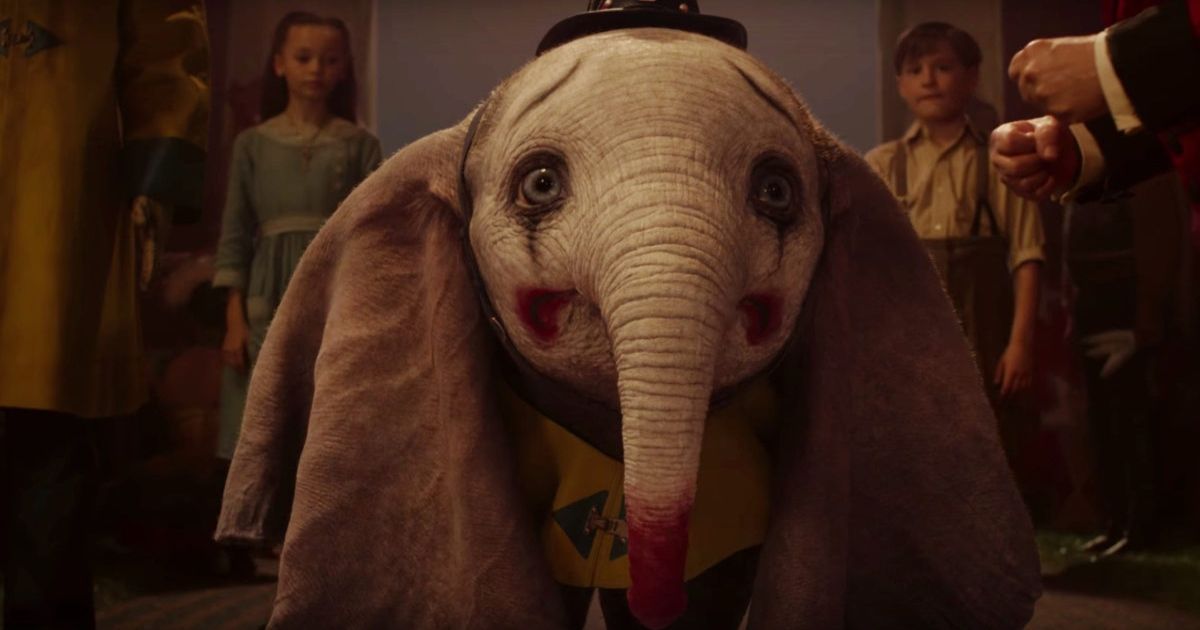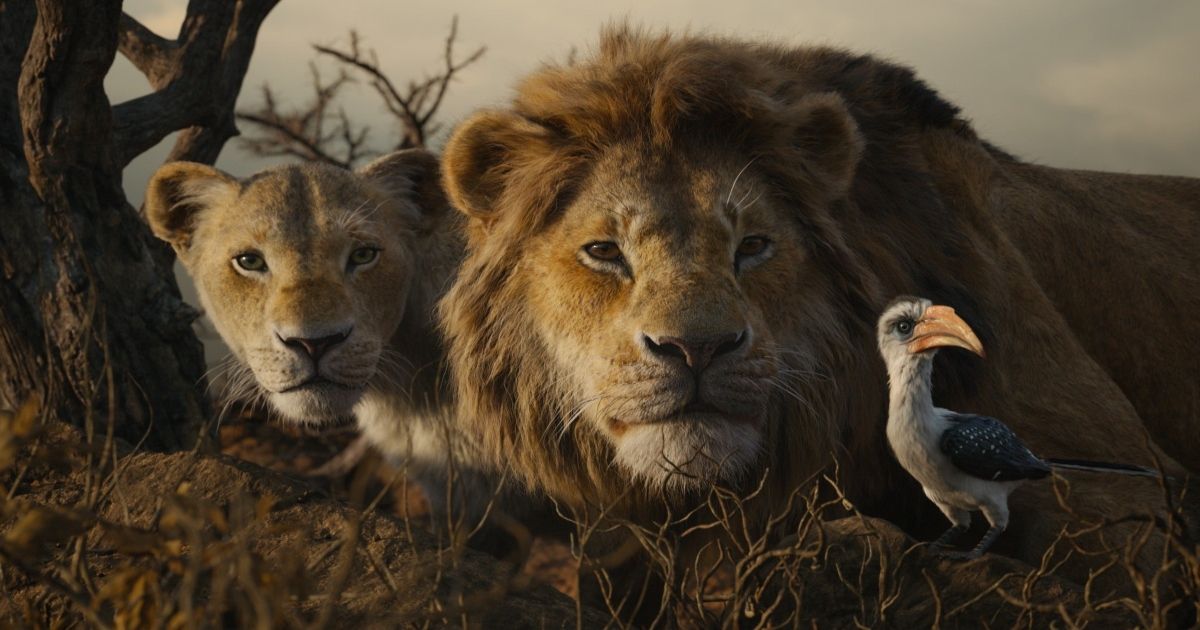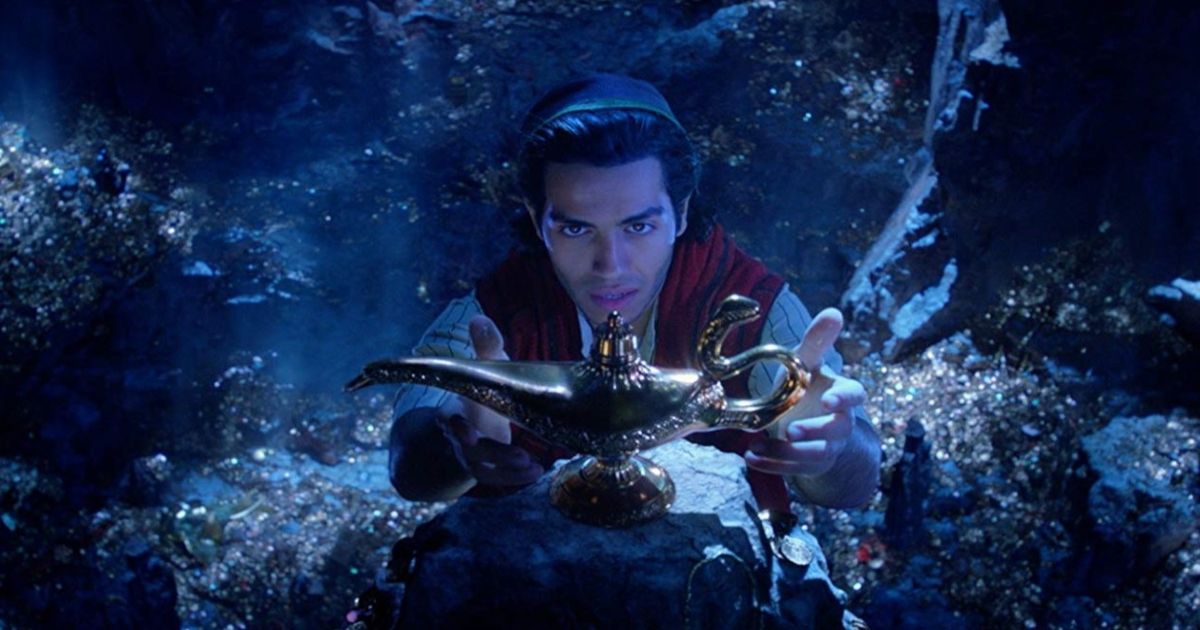Over the last decade, Disney has located yet another box office gold mine to tap into. However, as opposed to its major money-makers like the Marvel Cinematic Universe, Star Wars and, most likely, the upcoming Avatar: The Way of Water, Disney did not have to shell out a ton of money to purchase the rights to this particular gold mine. Of course, the films in question are the live-action remakes of Disney’s various animated classics. Although Disney already had a history of remaking its classics in live-action, tracing back to 101 Dalmatians and Rudyard Kipling’s The Jungle Book in the 1990s, there has been a significant uptick in the number of live-action adaptations that the Mouse House has produced over the last ten years.
The first entry in this modern trend is Tim Burton’s Alice in Wonderland, which grossed over a billion dollars worldwide following its release in 2010. After the success of that film, Disney eased into remaking more of its films by taking a slight break and then releasing Maleficent, Cinderella, The Jungle Book and an Alice in Wonderland sequel in the span of 2014 through 2016. The resounding box office success of those films, with the exception of Alice Through the Looking Glass, was all Disney needed to know, as the studio went all in on these live-action remakes after that. Since 2017, it has released 10 more of these live-action remakes, ranging from The Lion King to The Beauty and the Beast, Aladdin, Mulan and more.
It's no secret why Disney has started producing more and more of these kinds of films. They typically make an immense chunk of change at the box office. Of the live-action remakes they’ve produced so far, four of them (Alice in Wonderland, Beauty and the Beast, Aladdin, and The Lion King) have made over a billion dollars worldwide, with The Jungle Book coming only $35 million short of joining that club as well. This trend isn’t slowing down either, as the studio already has live-action remakes of The Little Mermaid, Peter Pan, and Snow White set for release over the next couple of years, in addition to a sequel/prequel of sorts to 2019’s The Lion King. While these films play with nostalgia and the audience's desire to revisit these stories, the constant stream of this content is hurting the overall Disney brand and diluting the great stories that are at home in the Disney Vault.
Lack of Originality
A significant part of what has built the Disney brand into what it is over the years is its dedication to telling new and original stories. Even when re-telling old fairy tale classics such as Beauty and the Beast or Cinderella, the creatives at the studio would rework the stories to include the company's own signature style and personality. It is upon the groundwork laid by these animated films that the Disney brand was built. Even looking way back to the late 1930s and throughout the 1940s, the movies that established the Disney image were the likes of Snow White and the Seven Dwarves, Pinocchio, Dumbo and Bambi. All of those films became legendary parts of Hollywood history, and Disney would continue that streak into the ’50s and ‘60s with Cinderella, Alice in Wonderland, Peter Pan, Lady and the Tramp, Sleeping Beauty, The Jungle Book and so, so many more.
Even though many of these films were based on preexisting stories, they were still relatively new, or at the very least completely re-imagined, additions to the American film canon. The same is true of the films of the Disney Renaissance in the ‘80s and ‘90s, with the release of new classics such as The Little Mermaid, Beauty and the Beast, The Lion King, Aladdin, and more. Disney is one of the largest entertainment companies in the world, and as such, it has the resources to be pushing the medium of film forward and expanding the kinds of stories being told. Instead, over the last decade, Disney has chosen to focus almost exclusively on the past.
As entertaining as some of the Disney remakes have been, and as downright horrible as others have been, the consistent factor throughout all of them is that they are inherently unoriginal. Disney can’t use the excuse that even the original animated films were based on preexisting stories, because those movies actually adapted and re-told those stories. These live-action remakes are, for the most part, simply repackaging the exact same iterations of those tales. While some of these remakes, namely 2016’s The Jungle Book, and 2019’s Aladdin, tried to take the stories in new directions, the bottom corporate line was that they had to be direct reproductions of their animated counterparts. Nowhere was this more blatant than in 2019’s The Lion King, which was an almost word-for-word carbon copy of the 1994 film.
Reliance on Nostalgia
Disney has made its name on producing content that children and parents alike will love and remember for the rest of their lives. It used to be that the company achieved this goal through genuinely great films and entertaining storytelling. Anymore, however, it is more preoccupied with reminding audiences about the stories they loved as kids rather than actually producing anything new. It should be said that this problem is chiefly haunting the live-action side of Disney’s film studio. Disney Animation, for the most part, has managed to continue the legacy of the Mouse House’s storied past in animation. Over the same time period as most of these live-action remakes, Disney Animation has produced great original stories like Zootopia, Moana, Raya and the Last Dragon and Encanto, with another brand new story, Strange World, set for release next month.
The live-action side of the company, however, has gotten in the bad habit of simply recycling the great work of the animation department. They are almost exclusively making very expensive reproductions of stories that the company has already told. Looking back on Disney’s extensive catalog of films, it appears that the most recent live-action film that Disney produced with a more-than-minuscule budget, and subsequently released in theaters, was 2016’s The Finest Hours, which had a budget of about $75 million. Beyond that, every single live-action blockbuster film that Disney has produced for nearly a decade has been either a remake of an animated classic, an entry in the MCU, a Star Wars movie, or some other adaptation of previously existing material.
Disney has become a company that is more interested in copy-and-pasting what it knows its audiences already love instead of producing something new for them to fall in love with. It has become overly reliant on nostalgia-baiting, and the result is that a vast majority of its films feel completely hollow and don’t have any sort of lifespan beyond the few months after their initial release. This is most apparent with their live-action remakes. Genuinely, does anyone remember 2019’s Dumbo and Lady and the Tramp remakes? What about 2020’s Mulan? The most recent example is the Pinocchio remake that was released straight to Disney+, which many people felt was a soulless and unnecessary retelling of one of Disney’s all-time classics.
The Endless Stream of Content
Disney seems determined to keep serving up these live-action remakes until it has burned its way through the entire studio's back catalog. In addition to the aforementioned upcoming remakes of The Little Mermaid, Peter Pan, and Snow White, as well as Mufasa: The Lion King, Disney is already reportedly developing a dozen more of these new adaptations. This array of other upcoming films includes sequels to 2016’s The Jungle Book, 2019’s Aladdin and 2021’s Cruella, as well as an Aladdin spin-off centered on Billy Magnussen’s character Prince Anders. Directors have recently been hired for other new live-action films such as Lilo & Stich and Robin Hood, with the most notable being Guy Ritchie coming on board to direct a retelling of 1997’s animated Hercules film with Anthony and Joe Russo producing.
With the rate at which Disney is developing these films, it’s only a matter of time until other classics such as Pocahontas, The Hunchback of Notre Dame, The Sword in the Stone, Bambi, and The Aristocats find their way to the big or small screen as well. Some of those examples already have had rumors circulating about their development. Heck, maybe Disney will even shoot its shot at remaking newer films like Tangled, Frozen, or Moana in about ten years as well. Disney just needs to wait until the kids that grew up on those films are old enough to feel nostalgic for them, then it’ll come time to cash in. If the movies keep making money, Disney is going to keep making them; that's about all there is to it.
This is all to say that Disney’s incessant need to recycle old stories and capitalize on the nostalgia people feel for them is negatively affecting the live-action department’s image and long-term success. While it’s true that many of these live-action remakes are performing well at the box office, they aren’t sticking around in the minds of viewers. There’s a reason why it’s consistently Encanto and Moana that are sticking around the Nielsen streaming charts week-to-week, rather than 2019’s The Lion King or 2017’s Beauty and the Beast. It is the more memorable original stories that Disney tells that not only uphold its brand but keep it moving into the future. By getting stuck on remaking all of its animated classics, Disney’s live-action department isn’t developing anything that is worth remembering. Now, it has even resorted to reviving some of its memorable live-action films from the ‘90s and 2000s, notably National Treasure and The Santa Clause, as Disney+ series. As a live-action film studio, it is so preoccupied with bringing back stories that people used to love, that it is forgetting to make fresh, new and lovable ones along the way.




